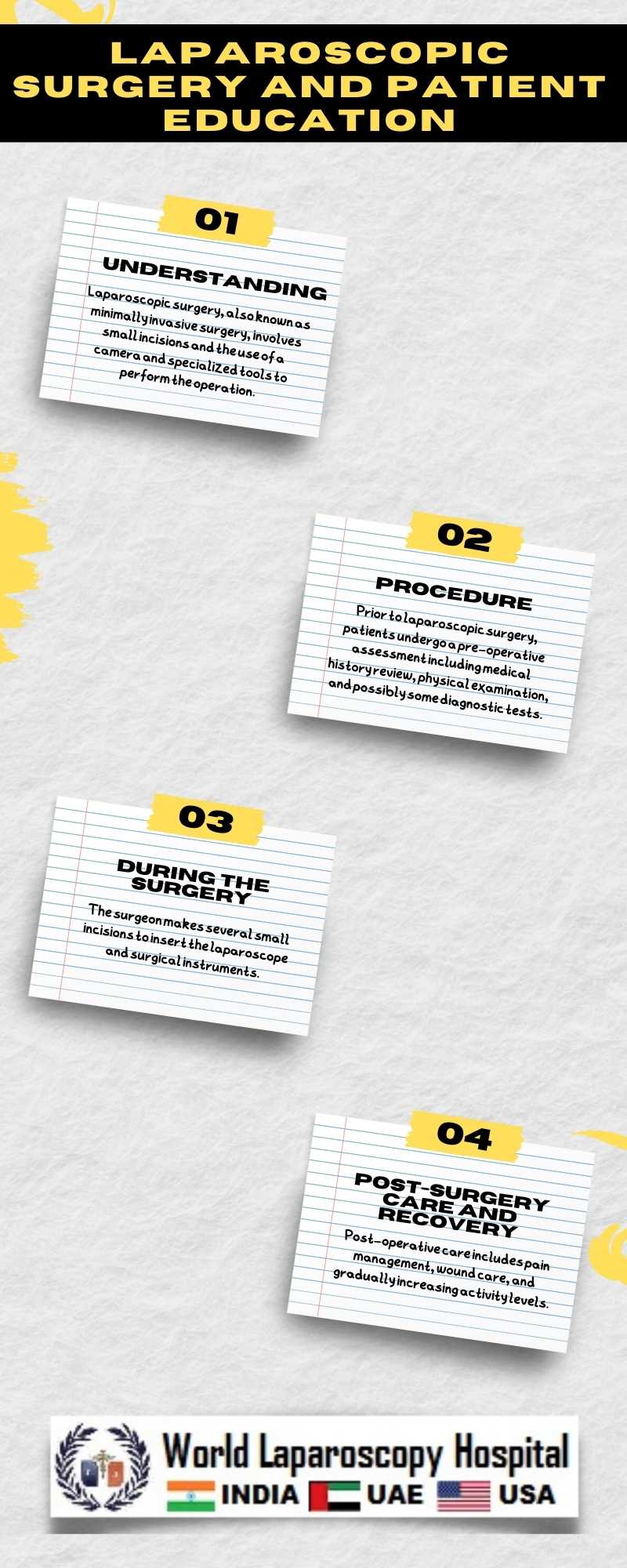
Laparoscopic surgery utilizes small incisions, typically 0.5-1.5 cm, through which a laparoscope (a thin, lighted tube with a camera) and specialized instruments are inserted to perform the operation. The camera projects images onto monitors in the operating room, providing surgeons with a magnified view of the internal surgical site. This technique is widely applied in various procedures, including gallbladder removal, hernia repair, and certain bariatric surgeries, among others.
The advantages of laparoscopic surgery over traditional methods are significant. Patients often experience reduced postoperative pain, shorter hospital stays, faster recovery times, and smaller scars. Additionally, the minimally invasive nature of the procedure reduces the risk of infection and postoperative complications, leading to an overall improvement in patient outcomes.
However, the success of laparoscopic surgery is not solely dependent on the surgical procedure itself but also on effective patient education. Educating patients about what to expect before, during, and after surgery is crucial for several reasons:
1. Informed Decision-Making: Patients need to understand the nature of the procedure, its benefits, and potential risks to make informed decisions about their healthcare. Knowledge about the procedure can alleviate fears and anxiety, leading to a more positive surgical experience.
2. Preoperative Preparation: Proper patient education includes instructions on preoperative preparations, such as fasting, medication adjustments, and hygiene protocols. Understanding these requirements is essential for minimizing surgical risks and complications.
3. Postoperative Recovery: Educating patients on postoperative care is vital for a smooth recovery. This includes guidance on wound care, activity restrictions, dietary modifications, and recognition of potential complications. Empowered with this knowledge, patients can actively participate in their recovery process, potentially speeding up their return to normal activities.
4. Long-term Lifestyle Changes: For certain procedures, such as bariatric surgery, laparoscopic surgery is just the beginning of a long-term lifestyle change. Patients must be educated about the necessary dietary, exercise, and lifestyle adjustments required to maintain the benefits of the surgery.
The role of healthcare professionals in patient education cannot be overstated. Surgeons, nurses, and other healthcare providers should work collaboratively to ensure that patients receive comprehensive, understandable, and accessible information. This might include verbal instructions, written materials, and even multimedia resources.
Conclusion
Laparoscopic surgery represents a significant leap forward in surgical practice, offering numerous benefits to patients. However, the full potential of these advantages can only be realized when patients are well-informed and actively engaged in their care. Therefore, patient education is not just an adjunct to surgical care but a cornerstone of successful laparoscopic surgery, ensuring that patients are well-prepared, comfortable, and capable of contributing to their own recovery and long-term well-being.